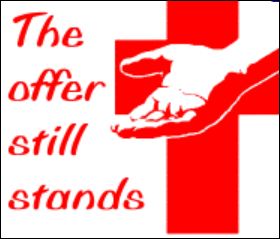The Great Commission calls all true believers to be committed to the mission of making disciples. Paul left Titus on the Island of Crete to do just that in a troubled, difficult environment, but he did not desert him to the task. We know of at least one letter Paul wrote to Titus instructing him and encouraging him in his mission. This letter is one of the letters in the Bible.  Paul begins his letter to Titus by modeling what it takes to become a good disciple maker. In verses 1 through 4 of chapter 1, Paul illustrates for Titus and us that it all begins with commitment. The first commitment is to the mastery of Christ in our lives. In verse 1, Paul calls himself “a servant (slave) of God and an apostle of Jesus Christ.”
Paul begins his letter to Titus by modeling what it takes to become a good disciple maker. In verses 1 through 4 of chapter 1, Paul illustrates for Titus and us that it all begins with commitment. The first commitment is to the mastery of Christ in our lives. In verse 1, Paul calls himself “a servant (slave) of God and an apostle of Jesus Christ.”
Placing oneself under the umbrella of rightful authority is the safest place anyone could ever be. It’s the most secure place. It’s the most rewarding place. It’s the most productive place. To Paul God was his master, and Christ was his authority. The word “apostle” means “sent one.” Paul saw himself as one sent out by Christ. Jesus told His disciples that just as the father had sent Him, so too was He sending them. You might also notice that the Great commission in Matthew 28:19 begins with the phrase “all authority has been given to me (Jesus) in heaven and on earth, therefore go, make disciples…” Israel’s leaders, judges, kings and prophets were all called God’s servants because they were speaking for God. Of course many of them fell short of the ideal. It’s when that happened that the Prophets began to speak of the one future, perfect servant of God; the Messiah. Jesus was that perfect figure. He said, “I have come to do my father’s will.” Just as God had sent Jesus, Jesus has sent us.
Obedience is the key to success. If we study the genealogies in the bible we soon learn this lesson. Constable puts it this way, “Throughout history people and nations have succeeded or failed as they recognized God.” Recognizing God as the ultimate authority in life and committing ourselves to be His servants is the first step of obedience. It’s also a prerequisite for making disciples.
Chuck
“Submit yourselves therefore to God.” James 4:7






